Irritable Bowel Syndrome (IBS) is a functional bowel disorder that affects an estimated 10-15% of the population worldwide. In the US, around 45 million people live with IBS, mostly under the age of 50, with twice as many women as men having this condition.
Only a medical professional can give a diagnosis of IBS. Fortunately, there are several treatments available that may help in managing symptoms of IBS. These include taking certain foods and supplements, such as yogurt and other probiotics. Is Activia Yogurt good for IBS? Let’s find out.
History Of Yogurt
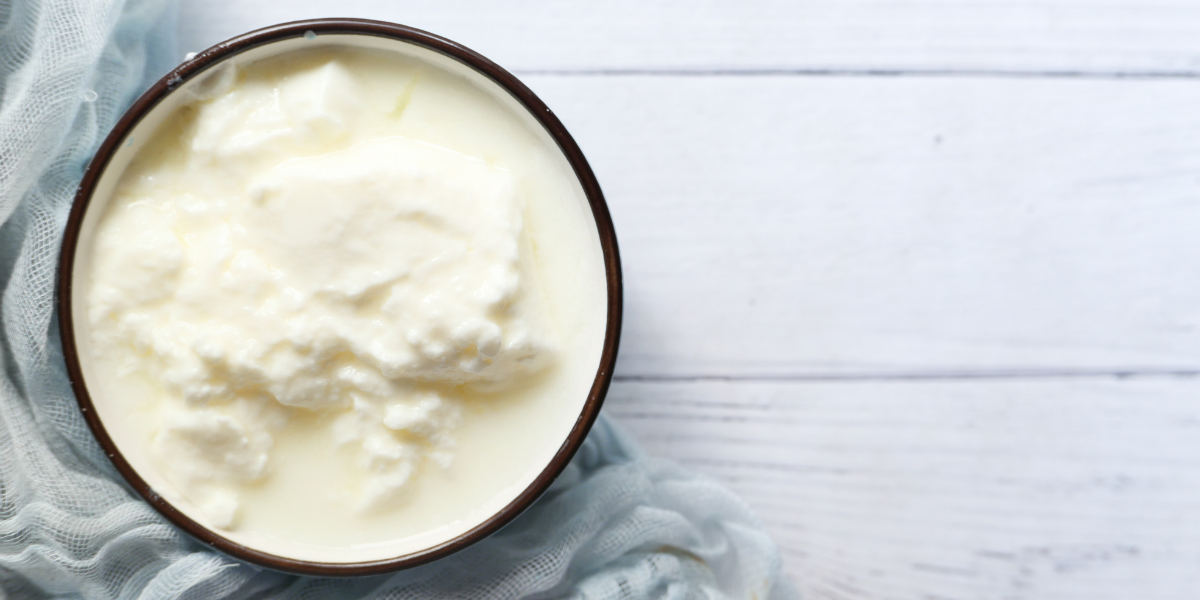
Yogurt first appeared between 5000 to 10000 years ago when it became a source of food for the ancient people of Europe, Asia, and the Middle East. The theory is that travelers used to store milk in animal skins for consumption, but the journey was too long and the climate so hot that the milk naturally fermented under the warm temperatures and turned into what we now call yogurt.
As for Activia yogurt, the brand was first introduced in France in 1987 by the Danone company, otherwise known as Dannon in the US. Known for its probiotics, Activia is believed to promote regular bowel movement and improve digestive quality. At present, it is being sold in more than 70 countries around the world.
Types Of Yogurt

There are different types of yogurt, some being more healthful than others, and they are:
- Low-fat or non-fat yogurt – Low-fat yogurt is made with 2% milk while non-fat yogurt is made with 0% or skim milk.
- Non-dairy yogurt – This yogurt uses soy or coconut milk instead of regular milk for people who have allergies or intolerance to it.
- Kefir– A liquid yogurt intended for drinking that is rich in probiotics and quite easy to make.
- Greek yogurt – A thick, creamy yogurt with high protein content often used in Mediterranean cooking and dips.
- Frozen yogurt – This yogurt type serves as a healthier alternative to ice cream, although some contain the same amount of sugar as ice cream.
Nutrition Facts
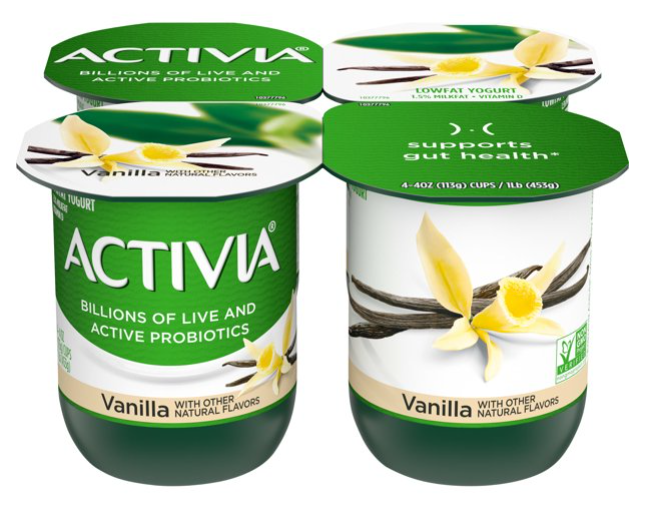
Here is the nutritional value of 1 cup (113g) of creamy Activia Low-fat Probiotic Vanilla Yogurt based upon the percentage Daily Value (%DV) of the recommended 2000-calorie per day diet:
Calories 90
Total Fat 1.5g (2%)
Saturated Fat 1g (5%)
Cholesterol 5mg (2%)
Sodium 55mg (2%)
Total Carbohydrates 15g (5%)
Sugars 13g
Added Sugars 8g (16%)
Protein 4g (8%)
Dietary Fiber 0g (0%)
Calcium 140 mg (10%)
Potassium 170mg (4%)
Iron 0.1mg (0%)
Vitamin D 1.7mcg (8%)
Ingredients include cultured grade A reduced fat milk, cane sugar, water, less than 1% of milk protein concentrate, natural flavors, modified corn starch, kosher gelatin, agar agar, lactic acid, vitamin D3, milk calcium, live cultures l. bulgaricus (2), l. lactis, s. thermophilus, live and active probiotic b. animalis lactis DN 173-010/CNCM I-2494.
Yogurt As A Probiotic
Yogurt is high in calcium, protein, and vitamins but a lot of the health benefits of yogurt are due to probiotics. Probiotics are live and active cultures that have been shown to support gut health and contribute to overall wellness. There are other benefits to be gained from consuming yogurt like:
- Strengthens the immune system
- Provides important nutrients
- Benefits heart health
- Promotes bone health
- Helps with weight management
- Enhances absorption of vitamins and minerals
One of the most efficient ways to add probiotics to your diet is to consume yogurt, kefir, sauerkraut, miso, kombucha, and other fermented foods. Probiotics have been known to help in relieving IBS symptoms.
Symptoms Of IBS

An estimated 20 to 40% of all visits to gastroenterologists are attributed to IBS symptoms. People with IBS often experience common symptoms, ranging from mild to severe with different durations, and these include:
- Excessive gas
- Cramps
- Abdominal pain
- Bloating
- Constipation
- Diarrhea
- Alternating bouts of diarrhea and constipation
- Mucus in the stool
Is Activia Yogurt Good For IBS?
A December 2021 article published in livestrong.com cited Dannon Activia Probiotic Yogurt as one of the top 10 best probiotic yogurts, according to a dietitian. Does eating probiotic yogurt, particularly Dannon’s Activia Yogurt, help relieve symptoms of IBS? Maybe, or maybe not.
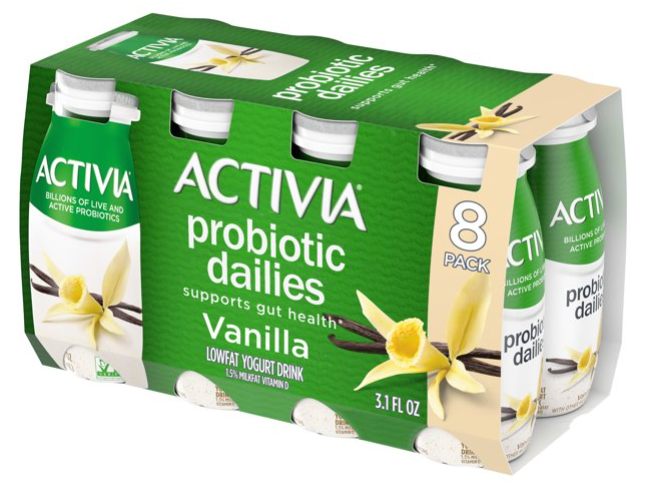
Studies on the benefits of yogurt and other probiotics have come up with mixed results that were significant enough to make the Canadian Society Of Intestinal Research declare that more research is required.
But first, we need to identify the digestive health benefits of regularly consuming Dannon’s Activia Yogurt such as:
-
Contains live and active cultures
Yogurt with ‘live and active cultures’, such as Dannon’s Activia, are beneficial to the gut because they may help in the management of certain gastrointestinal conditions such as:
- Irritable Bowel Syndrome
- Constipation
- Diarrhea
- Lactose Intolerance
- Inflammatory Bowel Disease
- Colon Cancer
- H. pylori infection
In January 2021, the Food and Drug Administration (FDA) required yogurt labels to identify whether they contain live and active cultures or not. This is because some yogurt products undergo heat treatment after fermentation which kills the live and active cultures.
As a way to identify yogurts that contain these beneficial bacteria from those that don’t, the International Dairy Foods Association (IDFA) offers the special “Live and Active Cultures” seal for all yogurt manufacturers to attest that their product has not been heat-treated. For a yogurt product to be able to have this seal on its label means that it contains a minimum of 10 million cultures per gram at the time of manufacture.
Clinical dietitian Ashley Baumohl, MPH, RD, of Lenox Hill Hospital in New York, says that it is necessary for the organisms of the yogurt to be alive and active during their shelf life in order to receive the health benefits mentioned earlier.
-
Has zero or minimal additives
According to Stephanie Middleberg, MS, RD, CDN, founder of health and wellness practice Middleberg Nutrition in New York, it is best to check the ingredients list for added sugar, artificial sweeteners, stabilizers, and color and flavor additives and try to avoid them because they “negatively impact the gut microflora.”
For example, artificial sweeteners can disrupt the healthy balance of gut bacteria and turn beneficial bacteria in the gut microbiota into harmful microbes.
Food additives like colors, emulsifiers, and preservatives are known to cause hypersensitivity reactions in some IBS sufferers.
As much as possible, go for plain yogurt or, for the flavored variety, opt for 8g or below of added sugars. In addition, Middleberg advises choosing the yogurt with a short ingredient list.
The more ingredients there are in food, the more processed it is and the more chances it has of containing additives that trigger IBS symptoms. Here are other common food triggers that can bring about symptoms of IBS:
- Coffee
- Fried Foods
- Dairy
- Alcohol
- Sugar
- Artificial Sweeteners
- Beans and Legumes
- Chocolate
- Gluten
- High Fructose Corn Syrup
When food triggers cause an increase in the intensity of IBS symptoms, the impact can also be greater. It can lead to nutritional deficiencies and considerably lower the quality of life.
-
Contains a probiotic strain not found in other brands
So what makes Dannon’s Activia yogurt different from other yogurts? Dannon has trademarked a probiotic strain called Bifidus animalis lactis that is only found in Activia yogurt and no other yogurt brand. They claim that this particular strain accelerates the transit of waste through the gastrointestinal system and improves intestinal immunity more efficiently than other strains.
Dannon says that their Bifidus strain “survives passage through the digestive tract, arriving in the colon as a living culture,” when other cultures tend to be destroyed by stomach acids and the natural digestive process.
In addition, consumers are encouraged to participate in the Activia 14-Day Gut Health Challenge. It involves consuming Activia two times a day for 2 weeks as part of a balanced diet and healthy lifestyle which is said to help minimize the frequency of mild digestive discomforts such as gas, bloating, abdominal discomfort, and stomach rumbling.
William J. Bulsiewicz, MD, a gastroenterologist from Mount Pleasant, S.C. and author of the book Fiber Fueled, supports this claim as he says there has been some evidence that Activia can help relieve these mild digestive symptoms. He says that the two-week test may be worth a try and advises keeping a food diary to determine how -or if- the yogurt product affects any IBS symptom.
As much as there may be certain risks involved in taking probiotics for IBS, it is highly unlikely in people with normal and healthy immune systems, according to the Canadian Society of Intestinal Research. This may be due to the fact that “different probiotics are like different drugs” and generate different study findings. Furthermore, people experience IBS in different ways so only a doctor can advise if a person should eat yogurt to treat symptoms.
Contradictory Results

On the other hand, Dannon had been in hot water for making grandiose claims about the health benefits of Activia. In 2010, the US Federal Trade Commission (FTC) filed a lawsuit against Dannon for alleged false and deceptive representations regarding Activia, saying that the product can regularize the bowel movement in 2 weeks even if evidence showed to the contrary.
A 2008 study found that the yogurt “shortened intestinal transit” but did not promote bowel movement. In fact, the University of Toronto conducted a recent study and discovered that, in order to achieve the said effects in the clinical trials, you would need to take from 2 to 25 servings of Activia yogurt per day.
In October 2016, the British Dietetics Association published a review of their findings after examining 35 clinical trials of probiotics to identify which strains and dosages are effective for the management of IBS. The research team concluded that there is no consistently effective strain or dose that can improve IBS symptoms or the quality of life so more trials about probiotic therapy in IBS are needed.
Why Yogurt Is Not For Everyone
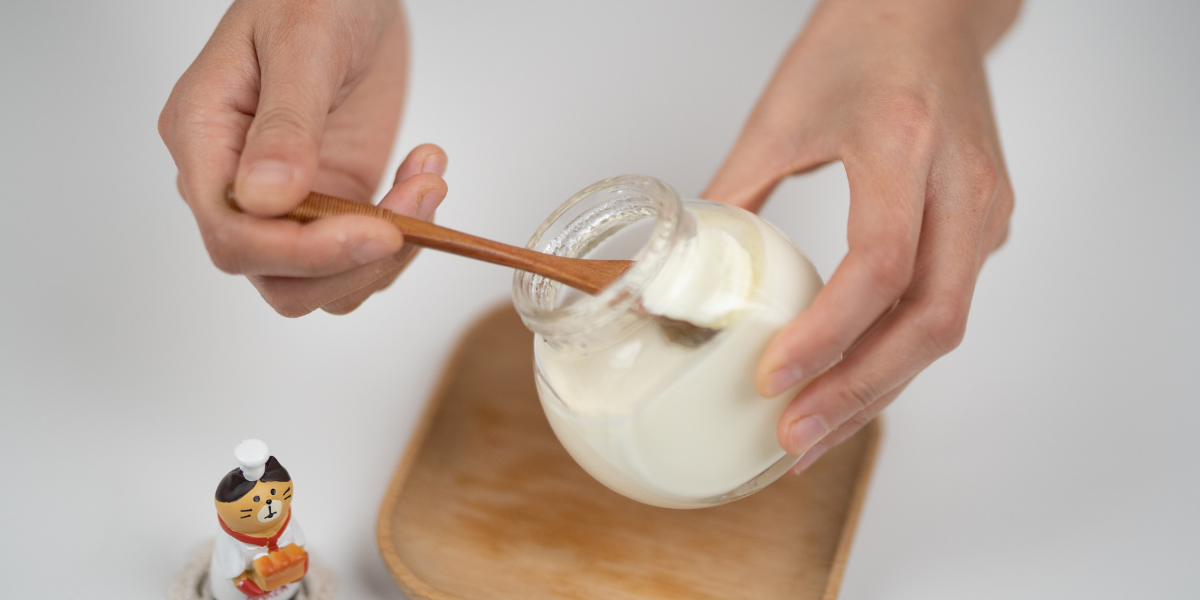
In spite of all the hype regarding yogurt’s health benefits, it may not be for everyone. Here are some of the reasons why yogurt is not advisable for some people:
-
Milk Allergy
It is best to avoid yogurt altogether if you have a milk allergy. Milk products contain certain proteins like whey and casein that some people are allergic to. When milk is consumed, it causes adverse reactions ranging from hives to life-threatening anaphylaxis.
-
Added Sugar
Dr. Bulsiewicz says that, due to its sugar content, regular consumption of yogurt over a period of time may actually do more harm than good. Added sugar, which is often present in lowfat yogurt, feeds the harmful bacteria which, over the long term, may negatively alter the bacterial balance in the gut. As an example, a 4-ounce (half-cup) serving of Activia Lowfat Probiotic Vanilla Yogurt contains 13 grams of sugar, with 8 grams of it from added sugars.
-
Lactose Intolerance
A person who lacks lactase, an enzyme needed to break down a type of sugar called ‘lactose’ found in milk, is considered lactose intolerant. However, yogurt has lower lactose content than milk because the lactose has been used up in the process of fermentation. Consuming milk products can cause digestive symptoms such as gas, abdominal pain, and diarrhea.
Other Ways To Relieve IBS Symptoms

Aside from taking probiotics, here are some other ways to help in the management of IBS symptoms:
- Try prebiotics – Prebiotics is a type of dietary fiber that serves as food for the good bacteria in the gut and makes the stool softer and easier to pass.
- Increase fiber intake – Aim for 22 to 34 grams of fiber daily but do it slowly and in small amounts as consuming too much fiber too soon can cause gas and trigger IBS symptoms.
- Drink enough water – Staying hydrated enables the fiber to pass through your body faster and more efficiently.
- Follow a low-FODMAPdiet – A type of carbohydrate, FODMAP foods feed your gut microbes, but not in a good way because they may cause gastrointestinal issues.
- Sip some warm tea – Peppermint tea is helpful when having stomach pain because it soothes the digestive tract.
- Use a heating pad – Apply a heating pad or hot water bottle on the painful part of your stomach for some relief.
Recap
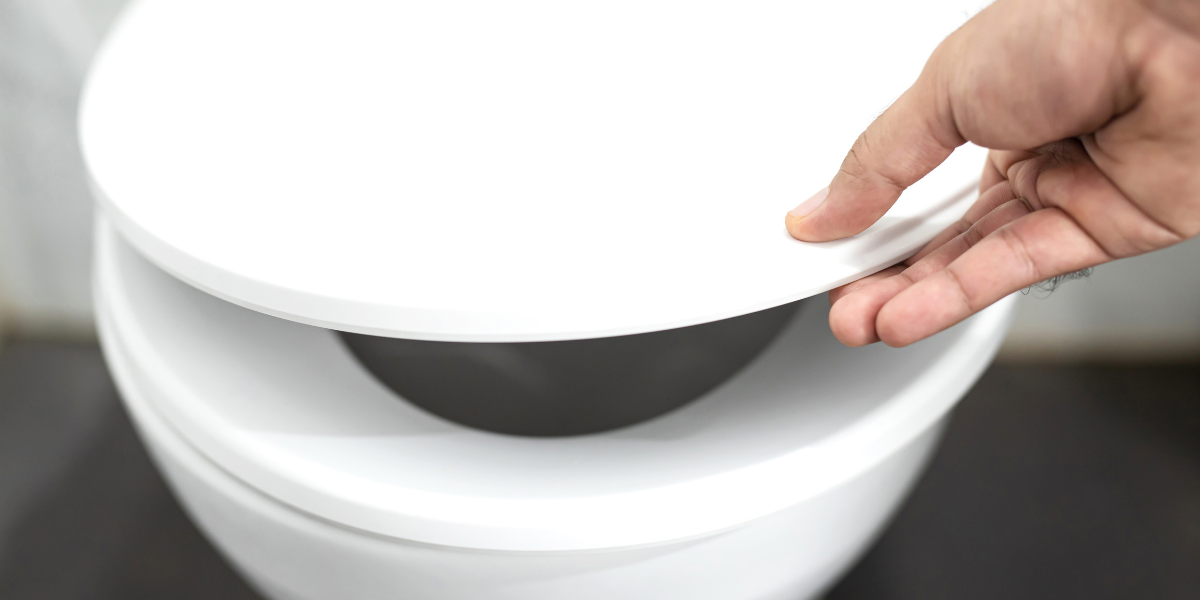
Irritable Bowel Syndrome is a chronic digestive condition that appears and disappears over time and lasts for a period of days, weeks, or months at a time. When symptoms occur, the frequency and severity can often interfere with your normal activities. Add to it the fact that it is usually a lifetime problem.
Unfortunately, there is no cure for IBS but symptoms can be controlled and improved through proper diet and lifestyle changes. This includes consuming probiotic foods, such as yogurt, which is one of the best sources. Is Activia yogurt good for IBS? Now you know that it may and may not be.

